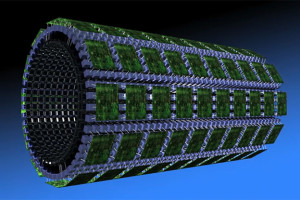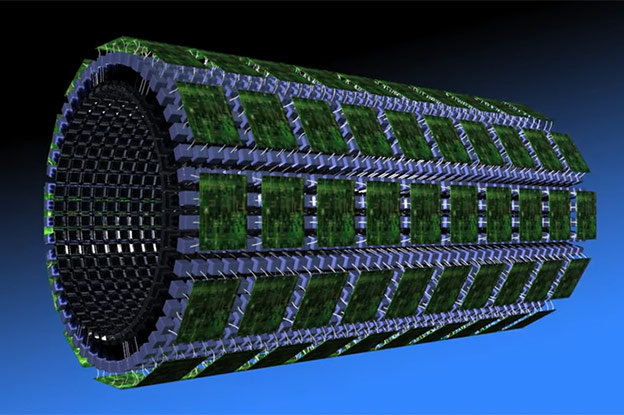Scientists from the Department of Energy’s Lawrence Berkeley National Laboratory (Berkeley Lab) have set out to help build the world’s first total-body positron emission tomography (PET) scanner, a medical imaging device that could change the way cancers and other diseases are diagnosed and treated. The project is a consortium led by a UC Davis research team and includes scientists from Berkeley Lab’s Molecular Biophysics & Integrated Bioimaging Division and the University of Pennsylvania. It’s supported by a recently announced five-year, $15.5 million Transformative Research Award from the National Institutes of Health.
 The consortium’s goal is to build a PET scanner that images the entire human body simultaneously, a big jump from today’s PET scanners that only scan 20-cm segments at a time. In addition to being able to diagnose and track the trajectory of a disease in a way not possible today, a total-body PET scanner would reduce a patient’s radiation dose by a factor of 40, or decrease scanning time from 20 minutes to just 30 seconds.
The consortium’s goal is to build a PET scanner that images the entire human body simultaneously, a big jump from today’s PET scanners that only scan 20-cm segments at a time. In addition to being able to diagnose and track the trajectory of a disease in a way not possible today, a total-body PET scanner would reduce a patient’s radiation dose by a factor of 40, or decrease scanning time from 20 minutes to just 30 seconds.
Berkeley Lab’s contribution, led by William Moses, is to develop electronics that send data collected by the scanner’s detectors to a computer, which converts the data into a three-dimensional image of the patient. The new scanner will have half a million detectors, and the data from each detector must be electronically transmitted to a computer, so the task is incredibly complex. Other Berkeley Lab scientists involved in the project are Qiyu Peng, who is assisting Moses on the electronic instrumentation; and Bill Jagust, a longtime user of PET imaging techniques for clinical neurology research, who serves on an advisory board of medical doctors for the project. Read more at Berkeley Lab News Center.




